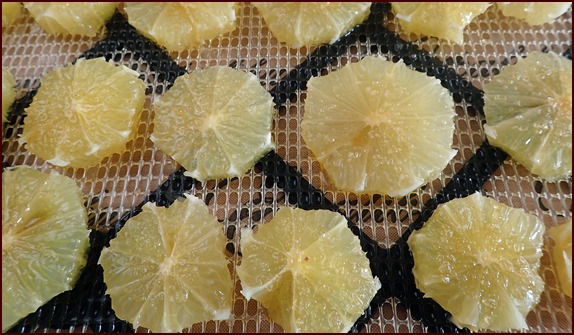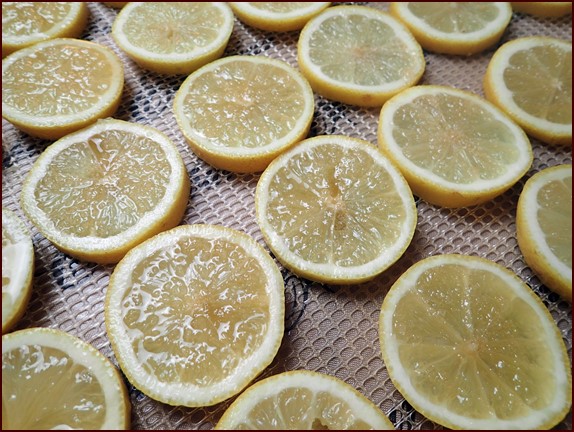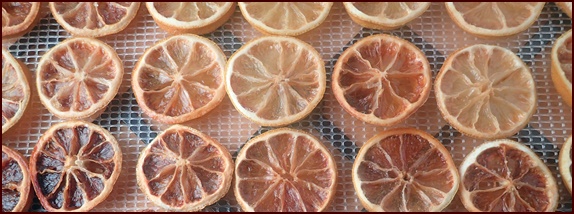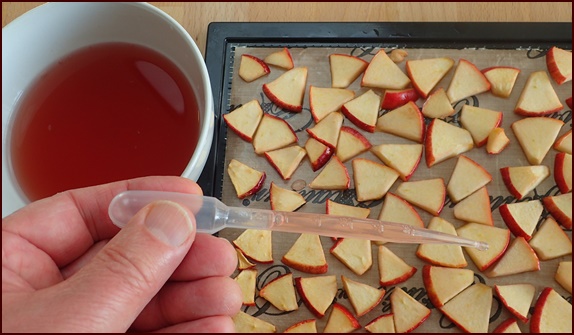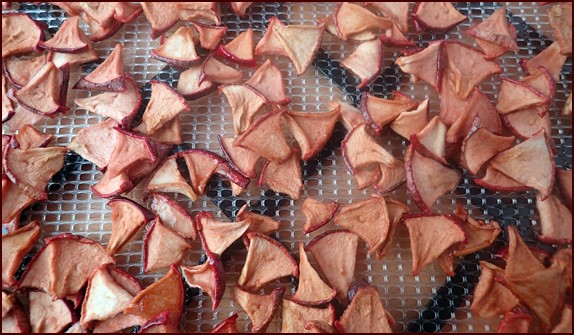| Back to Back Issues Page |
 |
|
December 2021 Trail Bytes: When Life Gives You Lemons... December 22, 2021 |
| Hello, There is that saying, “When life gives you lemons, make lemonade. In these challenging times, that’s a workable theme for a newsletter. Make the best of your situation. However, in this case, the moral was preceded by a literal start—Migros had lemons on sale at a good price. Dominique and I have one of those carafes with a metal spike running down the center that you spear chunks of lemon with to make lemon-water. We often drink it with our dinner. Ask Google if lemon-water is good for digestion, and you will learn that, “Drinking more water can help to reduce the risk of constipation, and the lemon will help to stimulate healthy digestion and elimination of waste. The acid in lemon juice will also help to break down your food more efficiently, making it easier for your body to extract maximum nutrients from every meal.” If Google says it’s so, it must be true. Minimize constipation, maximize nutrition—sounds like a plan. Two other beverages in our fridge are cranberry juice and carbonated apple juice. One evening, when our lemon-water supply was low, I mixed the three together: One part apple juice, one part cranberry juice, and two parts lemon-water. This cocktail was worthy of wine glasses, like pink Zinfandel with bubbles. It was so refreshingly light and sweet, that we started taking it on our hikes around Pfäffikon.
I should have remembered from all the different fruit leathers we have made, that adding too much sugar or honey causes stickiness. Perhaps Google could have reminded me that, “when simple sugars are heated, they melt and break down into glucose and fructose. The increase in temperature causes the sugar to darken in color.” The sugar-spiked lemon slices took a long time to dry. With each passing hour, they got stickier and browner. Obligated as I was to see the experiment through, I took one swig of the resulting caramelized lemonade before dispatching the project to the compost bin.
If at first you don’t succeed… dry, dry again.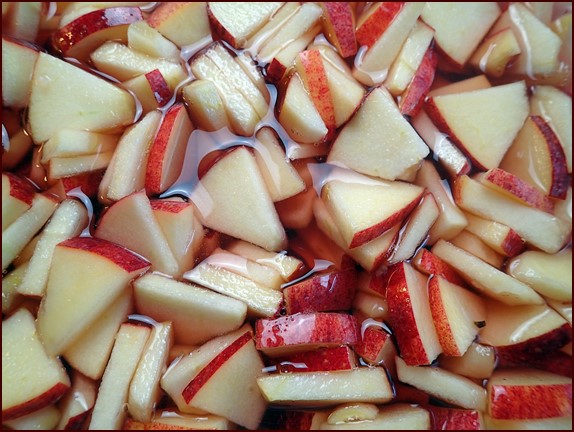
Cranberry-Infused ApplesI had better results drying apples basted with cranberry juice. Leaving the skins on to retain the flavonoids, I cut six apples into eighths and sliced those pieces thinly. As I cut the apples, I dropped the pieces into two cups of cranberry juice. I then placed the apple pieces on two dehydrator trays over nonstick sheets. Normally I don’t use nonstick sheets when drying apples, but it was necessary to keep the cranberry juice from rolling off as it was added during the drying process. After all the juices had been absorbed into the apples, I removed the nonstick sheets.
A future plan for brewing cranberry-apple lemon water on the trail will be to skip drying the lemons and repeat the apple-basting project a second time using lemon juice. In previous apple-drying projects, we learned that grated apples dipped in lemon juice were delicious, and we used them for snacking and to make overnight Bircher muesli. Because of the strength of lemon juice, only one juiced lemon is needed for five or six apples. Combining apples infused with cranberry and lemon juices will make a very refreshing afternoon fruit cocktail. This being the last newsletter of the year, we would love to hear from you. Did you have an adventurous year on the trail or in the kitchen? What’s on deck for 2022? If you’re busy wrapping presents and baking cookies, a friendly holiday greeting will warm our hearts. Frohi Weihnachte und Alles Guete im 2022! Chef Glenn & Dominique P.S. To contact me, please reply to this email or use this contact form. 
If you received this newsletter from a friend and would like to subscribe (it's free), subscribe here. Visit my BackpackingChef Facebook page for the lastest posts. Be sure to "follow" the page to continue seeing posts.
|
| Back to Back Issues Page |
